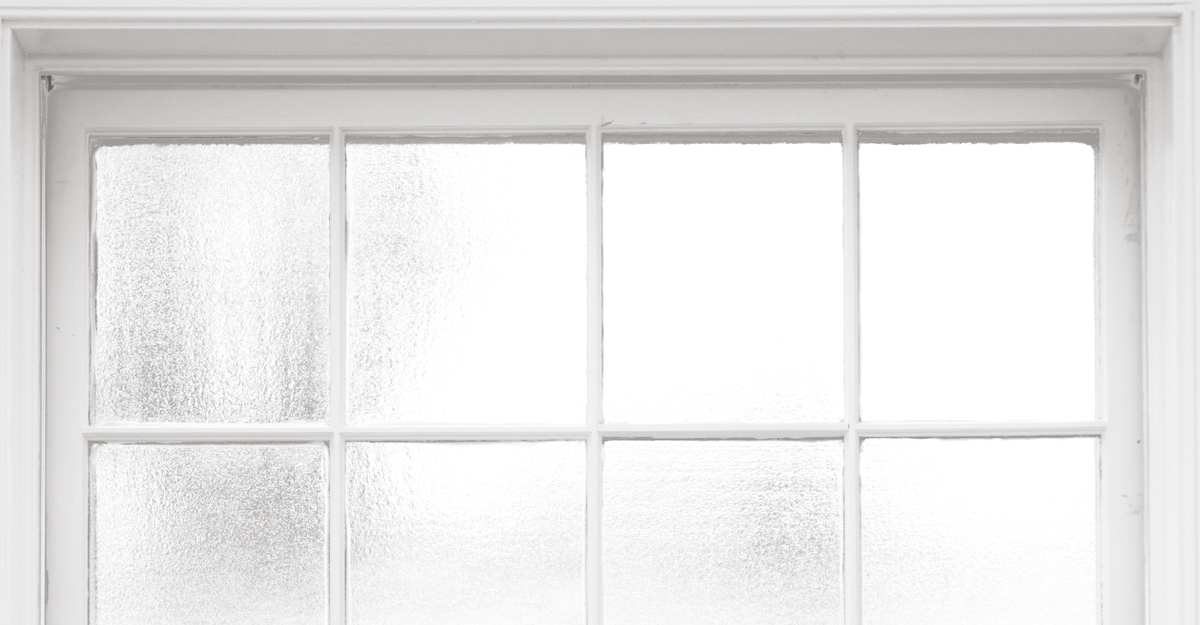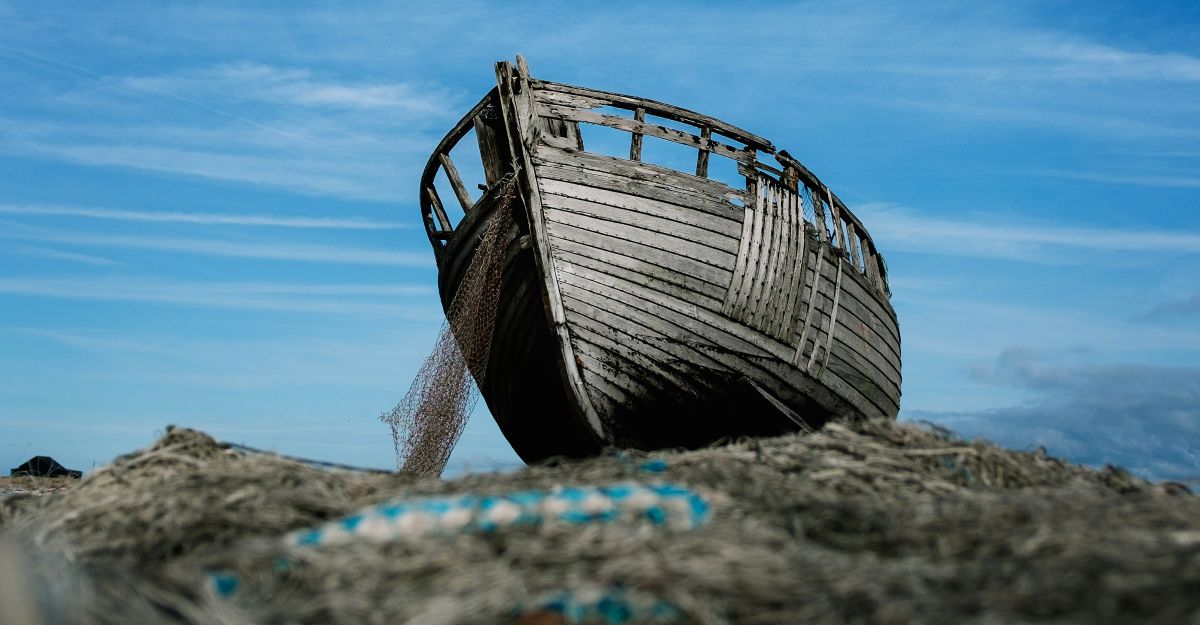See through
Glass gets all hot, then so cold, then it is glass.
Clothed, breathing can be difficult.
It is hard to move out of the house, but when she does, she can see where she was.
They say temperature has reached a hundred, gusts of forty miles per hour—descriptions relayed by telegram and phone to radio.
It is useful to have the weather narrated in your own language or it would be easy to believe nothing was the matter at all.
There is a radio-style voiceover that will become part of the news—it’s her father. He’s looking at a burning house.
When it ends up on the television, the video is black and white, but it is easy to see the implication of colour in the waves of fire pouring out of the windows.
The voiceover marvels at the capacity of technology to capture what is happening in front of them.
Two windows break to release more fire. At the start of the video, water puddles below the stairs at the front of the house: thirty seconds later, it is gone.
A child walks down the stairs and out of the house, her clothes and hair alight, and the camera turns to her and the man says: a victim emerging from the house.
The video cuts—it needs to be wound, relocated, and by the time the cartridge is replaced too many wailing people are running here and around the front of the house. The videos would be alarming—more than a warning and more than the amazement of danger. They would show only chaos and suffering. The ABC has not paid the reporter for human suffering; that will happen though, many years later, just before he dies and is buried in a small graveyard that overlooks the valley and is planted with gardenias that smell so beautiful until his family associates them only and forever with his death.
Before that, he has to go home, and his only daughter sits at the table and stares at him. She says, where have you been, and, you left me here with the child. There are just the three of them now: the reporter, his daughter, her daughter. Two lonely parents. The baby, born in isolation before anybody could tell, her husband dead, her father’s wife, dead.
She, the daughter, wore bag dresses for months and refused to leave the house.
Her father thought she was taking a turn from the humid air, the air so alarming that sometimes he panics, longing for the cool breath of England. He had served as a caulker in the navy: plugging holes, stopping leaks. Before they came here it had been impossible to tell anybody that all he had ever wanted was to report the news.
He bristles with the joy of it now—his hands are trembling. He picks the baby up and kisses her dewy, smoky hair. They are not in danger from the fires: he made sure of that. He covered sandbags with water. He built the house to last, out of mud bricks he made himself. It took years, and in the meantime they camped, always afraid of fire, flood, or the anger of other land-owners.
Now, even if they have to flee, the home will be safe.
It can last a hundred years or more, this kind of house, and in the evenings he runs his hands across the bricks, imagining he can still feel their warmth.
The baby moves in his arms; he holds her small hands. His daughter dresses in her dead husband’s clothes and leaves the house, returns hours later covered in charcoal with three more children and a woman whose legs are burnt.
Water, she tells him, and he goes to the creek to draw its dregs up for the burns.
She pulls the woman’s clothes up to her waist and tells her, sit, with her legs in the bucket filled with water.
He hands his daughter’s baby to one of the children and says, you can do this, and then he is pulling out a notebook, asking the burnt woman questions, her answers short and half in Gaelic, his stomach turning angrily at the incompleteness of her words while his pen moves fast.
He interviews them all, the children, the mother again a second and third time, his daughter drawing the woman’s hair back before leaving again, a rifle in her hand. There is a possibility that with all these fires blocking space, she can kill an animal for food.
The stories are published in a small local magazine and then in Melbourne. He accepts an offer to join another newspaper, a bigger one in Adelaide.
Before he goes his daughter says
all those stories, and you never told mine.
how I ran into the cabin
how the hairs on my arms burned away first
how I left, crawled under the deck, used rocks to punch a hole in the floor and had them taken out that way, first the children—scrawling rabble out in the paddock—then the mother, dragging her through by her arms, her legs collecting dirt as we moved
how I thought she would probably die from the shock, then that the children cried and she woke up
take my daughter, she says, to the city
you have a wife who died, nobody would question
you have money from the paper, you can hire someone, you can marry someone.
let me go.
The shack in Tasmania where she ends up is wood-boarded, nothing resembling the hearth-like cabin her father built for her mother that stayed warm in winter and cool in summer from the bricks they had laid by hand.
Her new husband says he’s done with it. He can’t handle this queerness in her, her dressing like a man, walking like a man, he calls it self-abandonment and she asks why he always has a term for her behaviour, then a few years into the marriage he says it isn’t so bad, that as long as she can be both so he can be singular he can survive, and she resents how easily his voice flows when he speaks, how casually he frames her, and how easily men can wield words to define their relationships with her.
She becomes pregnant again even though she is doing all the things she knows of to remain only one, and when the baby starts to grow she thinks
there is inside me a second heart
there is inside me a second pair of lungs
a pair of legs
ten fingers
toes one tenth of the size of my own
I own them all but one day I won’t own them at all.
She stops short of drinking cyanide because she thinks it could kill her, and then where would anyone be: gone.
none, not one.
In town there is a man who makes horses for shoes, or shoes for horses, locks and brilliant metal things and before she is showing she finds him and makes love to him under the heat of fire evaporating the humid air of his small room.
The baby that isn’t his, that she says is his, grows to the sound of metal being parted and wrapped, layered, poured, and the heavy smell of iron that spits at the child like a belligerent sibling.
The fire burns low in the evenings and they lie, the three of them, in each other’s arms until the baby falls asleep and she undresses the faux-father, takes his heavy shirts in her hands and lifts them over his body until all she can see is his skin bare in the firelight.
He teaches her to drop liquid into water and make metal. She builds a small cabin for herself out of mud bricks—it takes her ten years—and by then the war has taken her husband, her child’s only real father, and she is working his trade by day and in the night melting sand to make glass and stamping the pieces with a French stamp. She changes her name to Marianne, although nobody really knew what it was before, and sets up a shop where the light catches coloured glass at obtuse angles and her son wanders the floor dragging a horseshoe behind him like a lucky charm.
She owns the property, she is allowed to vote because she owns the land, even though the man is dead, because he has left everything in her name.
By the time the sixties happen her child is a teenager and their house in the appendix of Australia has withstood close shaves from fires threatening to burn their way across the forested hills and into the warm brick of her father’s design.
The ocean, walking distance on a good day, is full of seaweed that washes to the shore and is collected, like the shells, to be trapped forever in a glass bowl or a candle holder. The child snaps one in a fit of rage, smashes it against the bricks, cuts his hands and runs to the sea to bathe them, the mother watching him go, watching his long legs and dark hair, wondering at his madness, at their madness.
He comes and goes this way until he is tall, taller than his faux-father, and one day when he walks sandy in from the beach, he tells her he wants to leave.
This solitary life will kill him, or he will kill her, if he is made to remain.
She hands him a slip of paper with his not-father’s, his real father’s, address on it, says
this is the man that made you but not the man who loved you
and he races into the sun while she sets the furnace alight and measures sand in increments until she is content.
She pours the glass into a frame, one she has been making for months, sensing his departure, and when she is finished, she knocks at the bricks to the side of the house until there is a rectangle where she will place the window and look on cold evenings at the angry sea.
His father accepts him, is shocked and alarmed, but the boy is lucky—the man and the wife he meets have never been able to have children, have been looking around for a child as if it would appear and now he has.
He goes to school, they cut his hair, and he looks in the mirror, watching his bare shoulders shift in the light, so unlike glass, so movable.
It isn’t so much a preoccupation as a compulsion—once he has the idea in his head, he has to act it out—and the idea is for a series of fireworks that glow through the sky, sparkle like wet tarmac colours of the rainbow. He has pictures of famous men on his walls, and women too, in case anybody were to go looking or go wondering.
Nobody does look, or wonder, and the pictures fray gently until they are soft at the edges and opaque from looking.
They talk back to him, argumentative things, they know the lyrics to his favourite songs and the colours he tastes in.
John is a giant cherry gobstopper and Paul is a fag, ha ha.
Himself, he is a pack-a-day kind of boy.
He tastes the Australian flag when it is hoisted; it tastes like dirt with a soft ring of smoke around it like it is an old olive burnt in a fire.
When they say his mother’s name, even though she isn’t about, he tastes it, and the taste is like tree bark mashed up in water.
He wonders at the name being nothing like her, wonders if he knows something secret about her, the secret of her being wet, afraid, bland.
He is working on his firecrackers under the watchful eye of a girl who touches him, and he looks at her, and before he really understands it, they are inside one another, the whole of him clutched against the way she sees him and the way she sees his precision, his focus.
When she tells him she is pregnant he cries and says
I’m not
and she presses a hand against his mouth and says, I’m not, and they travel together to the city like a sweet couple, like the taste of a sherbet with a stick of licorice against it, and when the procedure is finished she says to him
this is where we should be
we should be here
we should be at Kings Cross
we should be where everything is happening not in that backwater
not in that hole at the bottom of the earth
Before they can settle in a share house with a draping black curtain, surviving the privacy of one half from the other, the boy has news that his mother’s house has burnt, that the fires they escaped are burning across the whole state, that the worst is expected the following week.
Fire tastes like a clean armpit.
He aims to return by Tuesday, but by then everything is blackened and the roads to her house are blocked. He talks to a policeman whose name tastes how a wattle tastes when hit against the palm of the hand and licked, like a particular kind of honey, and he says accidentally, the taste of your name is lovely, and instead of being smacked on the shoulder like he expects, he is smiled at, a hand placed gently against his chest.
My daughter tastes people too, the policeman says, only the taste of my name is like a sour lolly. She loves me when I am Dad, but when I am my name, I am a sour grape in her mouth with no sugar at all.
An old man wanders through the forest, emerging with a camera and a notebook and says to the police
a woman—previous name unknown in these parts—named Marianne, is she here, is she somewhere? And the policeman says it is too early to rule people out.
The pieces of flora stay trapped in the glass for decades.
They are sold as antiques in a vintage store in the northern rivers.
A masked girl steps into the store, her hair extensions coming unstuck in the heat. She holds a gloved hand to one of them to keep it in.
The glove is mesh, the kind made to keep a person’s skin on.
Fires burn around her rainforest home, the smell like old molasses, like smoke spires off cane.
There it is, that is what she needs. The glass so delicate it could break. She takes the glove off, holds the glass in her scarred hand. Inside its purple colour, tiny shells swim like ash in the evening sky.
She takes a photo, has it wrapped carefully in old newspapers, and sets it in the window of her room: a spell for warding off fire.



